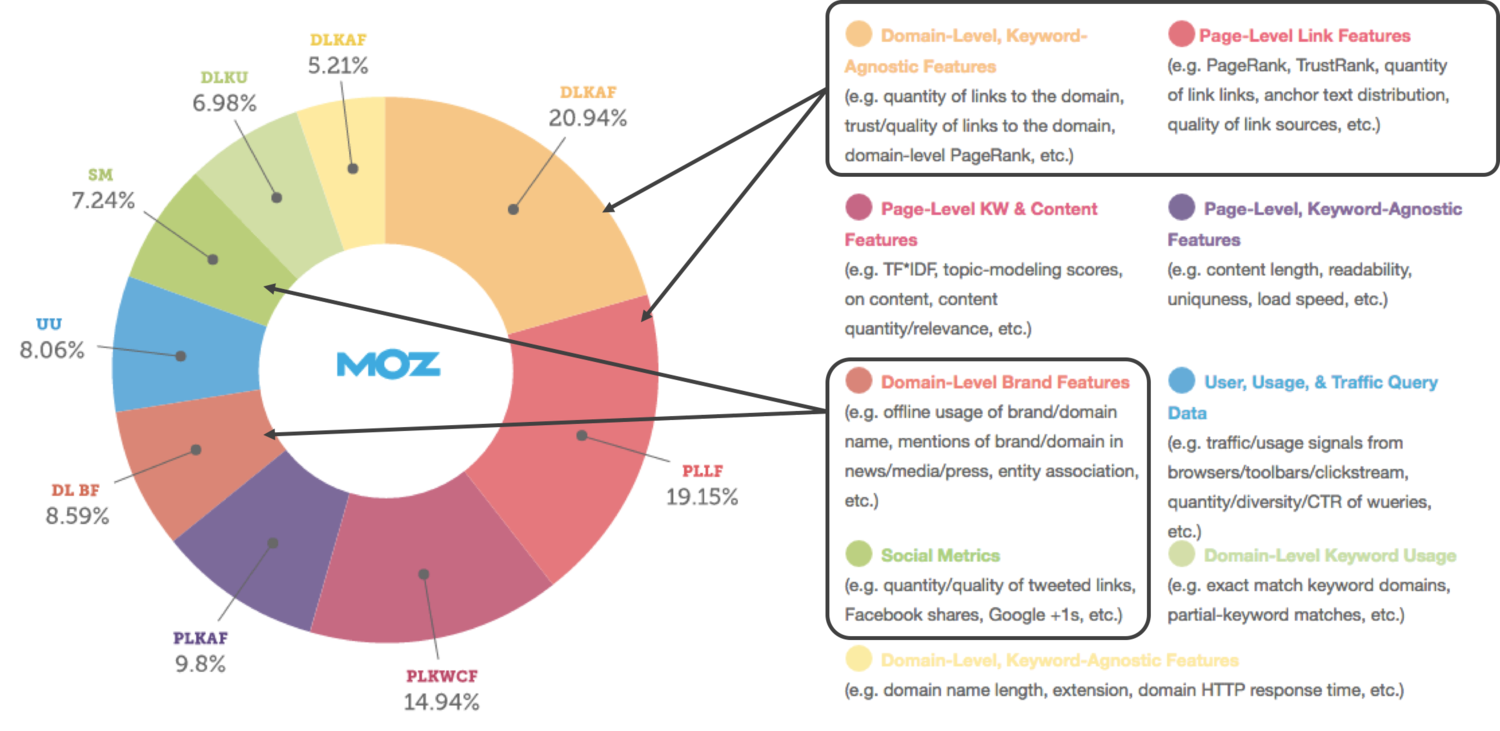Article originally published on Galactic Fed
Are you a small business owner wearing all of the hats? Are you by chance the Director of Customer Services, the Business Development Specialist, and the Finance Manager? In addition to all of your strategically balancing hats, are you also trying to figure out how to reach more customers online?
At Galactic Fed, we know time is a precious resource for all of you small business owners, and you can have a lot on your plate at any given time. That’s why we’ve pulled together our top tips for ranking higher on search engines – aka, Search Engine Optimization (SEO.) We’ve partnered with a ton of small businesses over the years, helping them scale their SEO, which has given us a firm grasp of what works.
Don’t panic. Let Galactic Fed act as your guide to the small business SEO galaxy. Make it easier for customers to find your small business online and launch your sales into an ever-increasing revenue orbit. If we’ve already lost you, it might be worth looking at our Beginners Guide to SEO to brush up on core SEO concepts and basic SEO terminology.
Now, let’s explore the best ways for your brick-and-mortar or service-based small business to rank higher on Google and engage more customers in the process.
The Essentials
TOOLS TO MAKE SEO EASIER
First things first, you need the right tools for the job.
Set up Google Search Console and Analytics accounts to develop benchmarks and track your progress. These tools will also give you insight into how new and repeat customers engage with you online and how Google sees your small business website.
THE SKILLED ART OF SEO-FOCUSED KEYWORD RESEARCH
We’re not going to beat around the bush. SEO-focused keyword research done well takes skill. Your best bet with nailing the right keywords as a small business owner is to partner with an SEO expert. To have a go at it on your own, both Google and Moz offer keyword explorers for developing an SEO-focused keyword strategy. Although you need to create a Google Ads account for the former, it is possible to use the tool for researching SEO-focused keywords, not just keywords for paid ads.
If we can stress one thing, it’s not to overdo it. Stuffing your small business website with keywords can harm your ranking. We recommend using target keywords in headings and title tags, where it makes sense to do so – i.e., it reflects the content in that particular area of your website.
On-Page & Off-Page SEO
SEO is the method of improving the quality and quantity of traffic to your website through organic search engine results.
There are two main ways to do this – through on-page SEO and off-page SEO. Our recent blog details the difference between the two practices. To keep things simple, we’ve divided our top tips for small business SEO into the same two categories.
ON-PAGE SEO TIPS FOR SMALL BUSINESSES:
On-page SEO focuses on improving your small business website’s aspects within your control, including page speed, headings, and keyword placement. Making these improvements to your website helps search engines pick up and index your site.
MONITOR YOUR PAGE LOAD SPEED
Put your small business website URL into Google’s PageSpeed Insights to analyze your load speed and get suggested fixes to make your site load faster on desktop and mobile. Search Engine Results Pages (SERPs) don’t like slow and sluggish websites (and neither do customers;) compressing large files like videos and images is a great place to start to address a slow-loading site.
USE HEADINGS AND SUBHEADINGS
Search engine bots love headings and subheadings, they notice them, and they can help you rank higher. Make sure to include relevant keywords in subheadings that reflect the content of your copy that follows them.
CRAWL YOUR SITE FOR BROKEN LINKS
Providing a link that takes visitors to a dead end can hurt your search engine ranking. Go through all of the links on your site and check they are in working order.
ADDRESS ANY SITE MAP ERRORS
Site maps are critical and often overlooked. Don’t fall victim to a low ranking due to site map errors on your small business website. Search engines don’t like to rely on sites with site map issues; check if your site has any errors by submitting your URL through Google’s Search Console.
WEED OUT DUPLICATE CONTENT
Having duplicate content on your website could be stopping your business from ranking higher on search engines. Perform a content audit and double-check nothing appears more than once on your site.
ENSURE YOUR SITE IS USER-FRIENDLY
This one’s a biggie. Rumors are Google will launch an algorithm update focusing on user experience (UX) next year. Get your site in top shape now to ensure the Google search bots won’t penalize you. Responsive web design is the industry standard, so make sure your small business site is mobile-friendly. With more people surfing the web on their phones, pared-down mobile versions of sites are becoming more common, to respect bandwidth.
Use clear and simple words to ensure the most significant number of customers can read your content. People read 25% slower on a screen than reading on paper, so keep it brief and write content for scannability, using bullet points, lists, buttons, and bold text.
OFF-PAGE SEO TIPS FOR SMALL BUSINESSES:
Off-page SEO is online activity that happens away from your small business website. Research conducted by Moz explains that off-page SEO-related actions carry more than half of your SERP ranking weight:

GET OTHER WEBSITES TO LINK TO YOURS
When a website provides a link to another website, it’s known as a backlink. SERPs are big fans of backlinks because they indicate your content is the real deal, and they’ll reward your small business site with a higher ranking. Online business listings are a quick and easy way to build backlinks if you’re entirely new to them. You can also ask your suppliers or clients to refer to you on their stock lists or testimonials.
Watch out for toxic links that can hurt your SERP ranking. SEMrush gives an excellent overview of developing a link-building strategy. To avoid negatively impacting your search ranking, we suggest working with a team of SEO experts who know the ins and outs of effective link building (cough, Galactic Fed.)
This year, we helped digital signage software company Enplug achieve first-page ranking and increase their backlink profile by 34% with our tailored content strategy.
GET SOCIAL
Social media activity and guest blogging can also influence where you end up on your target SERP. Before you spend time creating profiles on every social media platform that exists, ask yourself what content you have to share and if it’s a good fit for a particular social media platform.
LinkedIn may be a good place to invest your time if you’re a service-based business supporting other small businesses. If you’re selling a product to people, link-building through Facebook and Instagram might be where you’d get the most traction.
GOOGLE MY BUSINESS AND LOCAL SEO
If you’re a brick-and-mortar small business that relies on customers close to you, it’s worth getting a Google My Business account to boost your local SEO.
You can post product updates with photos, make announcements, and launch special offers. Customers can leave reviews for you, and you can reply directly to reviews, building customer trust and brand credibility. Having an active Google My Business account can positively impact your off-page SEO, and best of all, it’s free.
Help Your Small Business Reach More Customers Through SEO
There you have it, folks. From getting the right tools to research your customers and see how Google rates your site to using both on-page and off-page SEO activities and tactics, we hope that following our SEO tips helps your small business rank higher on search engines like Google.
Are you already thinking about your next SEO strategy? Let us help you! We’re seasoned experts at assisting small businesses to reach more customers. Sit back and watch your small business grow online with effective SEO, guided by Galactic Fed.




